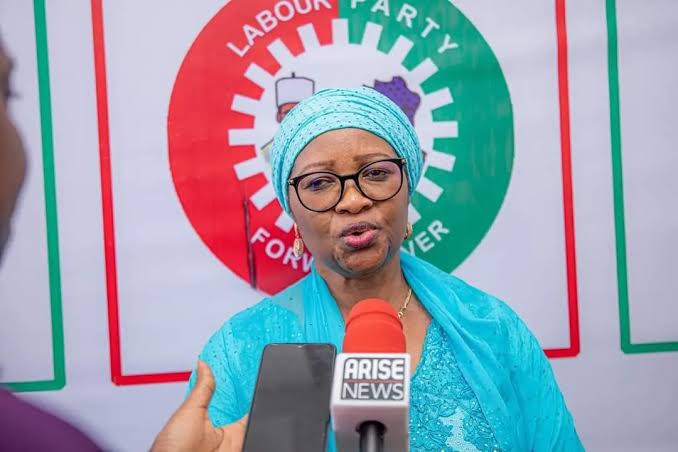Nigerian Labour Party (LP) Interim National Chairperson Nenadi Usman has described the opposition group as the sole viable political alternative to the ruling All Progressives Congress (APC) in Africa’s most populous nation. Speaking to journalists in Kafanchan, Jema’a Local Government Area, on Sunday, Usman urged citizens to support the LP’s agenda, calling it the “most people-centered” platform among Nigeria’s major parties.
“We are committed to restoring national dignity, hope, and delivering governance that prioritizes citizens’ needs,” Usman declared, while acknowledging widespread economic hardship. She noted that the “suffering of ordinary Nigerians has reached alarming levels,” pointing to inflationary pressures and fuel subsidy reforms that have deepened inequality since President Bola Tinubu’s administration took office last year.
Addressing recent defections of LP members to the APC, the party leader dismissed concerns about instability, insisting the exits had instead “strengthened internal unity.” She characterized departing members as individuals who “never truly shared the party’s vision,” claiming their departure allowed for sharper ideological alignment. “Mistakes were made in past candidate selections,” Usman admitted, referencing internal critiques of the party’s 2023 electoral strategy. “We’re now focused on vetting representatives who authentically support our mission to build a new Nigeria.”
The remarks come amid Nigeria’s protracted cost-of-living crisis, with food inflation hitting 40% in May 2024. The Labour Party, buoyed by its strong youth-driven performance in 2023 presidential elections, seeks to position itself as a reformist force ahead of 2027 polls. Analysts note its growing influence in southern regions and urban centers, though grassroots skepticism persists over organizational cohesion.
Usman outlined plans for nationwide membership revalidation drives, local congresses, and a national convention to consolidate restructuring efforts. The party aims to finalize its leadership hierarchy within months, addressing factional disputes that emerged after founder Peter Obi’s 2023 presidential bid. “We appeal to aggrieved members to resolve differences through dialogue,” she said, urging unity during preparatory phases for key party activities.
Political observers highlight ongoing challenges for opposition groups navigating Nigeria’s complex electoral landscape, where regional loyalties and resource imbalances often shape outcomes. While the APC maintains control of federal institutions, LP’s emphasis on anti-corruption and welfare reforms continues resonating with younger demographics critical of establishment politics. The party’s ability to institutionalize its 2023 momentum, however, may depend on bridging policy ambitions with practical governance—a test that will unfold as Nigeria grapples with security challenges and economic reforms.
